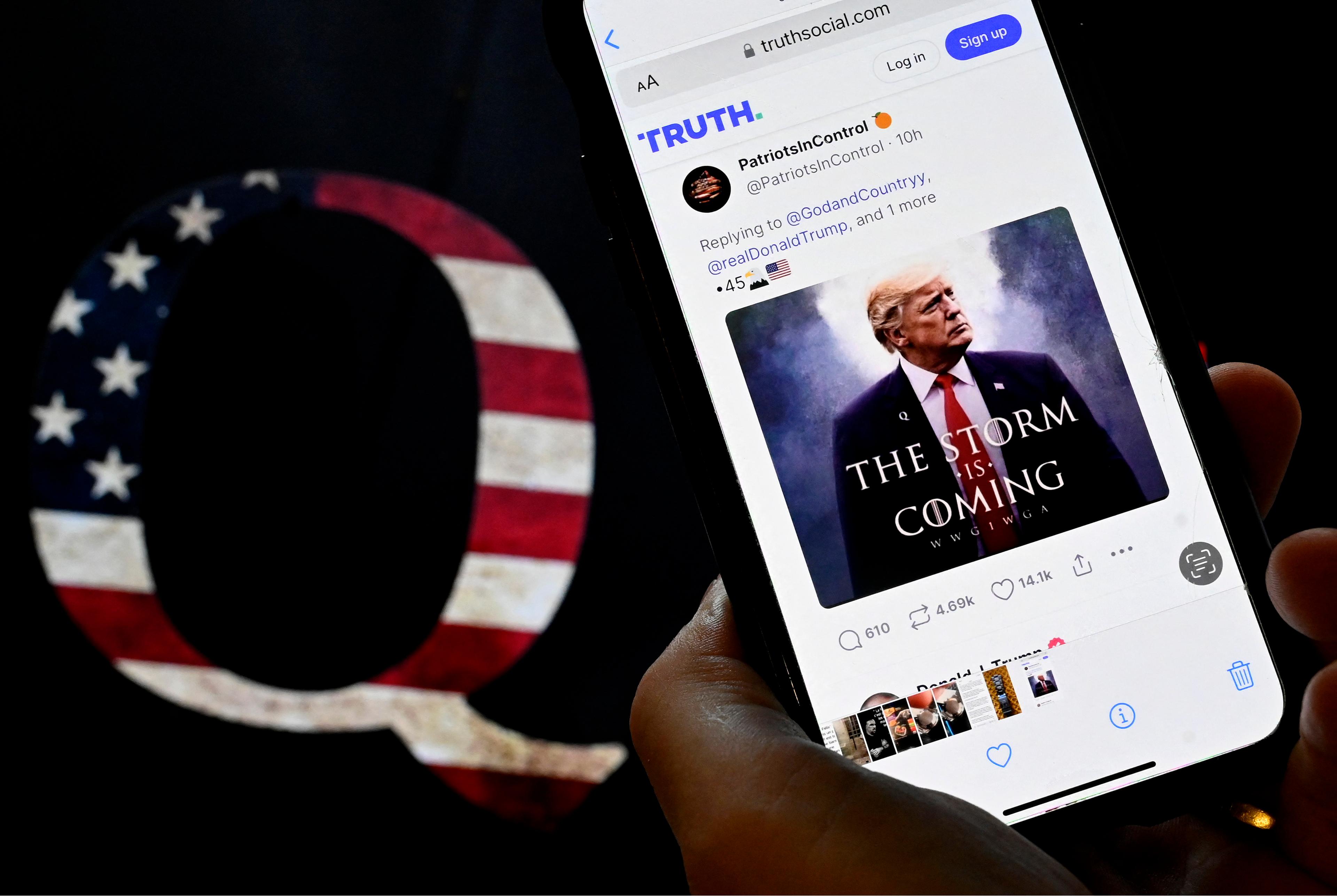America in the Age of Conspiracy: QAnon, JFK, Aliens, and More
Derek is joined by the hosts of ‘Stuff They Don’t Want You to Know’ to discuss conspiracy theories and how they’re affecting America today
Americans are unusually conspiratorial as a nation. But in the last week, we have really outdone ourselves.
The beating of Paul Pelosi—husband of the Speaker of the House—by a Q-Anon conspiracy theorist led to even more unhinged conspiracies about the media. Kanye West has been all over the news spreading nonsense theories about Jewish control of the world, and in basketball Kyrie Irving published a social media post about a book and movie that featured antisemitic tropes and questioned the Holocaust.
What makes certain conspiracy theories so successful? Why do conspiracy theories thrive in 21st century America? And aren’t some conspiracy theories ... actually true? Like, what’s the deal with aliens, and 1950s UFOs, and the assassination of JFK, and government projects on astral projection and military psychic powers? It’s all here in today’s episode, featuring the hosts of the popular podcast Stuff They Don’t Want You to Know.
The hosts of the hit podcast Stuff They Don’t Want You to Know tell Derek what makes a conspiracy theory stick.
Derek Thompson: So the first question that I have is sort of a 30,000-foot question. I want to know what you guys think makes a conspiracy theory successful because there are an infinite number of stories that we can tell about the chaos of the world, but for whatever reason, some conspiracy theories catch on, go viral, become cultural narratives, and others just die by the wayside. So what would you say makes a conspiracy theory successful? What are the key ingredients?
Ben Bowlin: What a great question. To kick it off, let’s say, let’s think of it like a recipe that you would use in a kitchen, or if you’re cooking in a potluck to impress your friends, the first thing you’ll need is something that does not have a satisfactory explanation. Some sort of issue, event, a person’s life that does not have a satisfactory explanation. That does not mean there’s a lie, it just means there’s something that people would rather have a different narrative for.
For that to be effective, the second ingredient you need is a lack of transparency. In the absence of transparency, speculation thrives.
The third thing you need, I would say, this is just my opinion, is you need something that implies some sort of control. Conspiracy theory always argues that there is some person, there’s some group, some entity that has a largely unacknowledged vast ability to control events.
And, of course, the key ingredient here, the real umami of the thing, is to have a participatory aspect. That’s why you see the ones that really stick around in a zeitgeist, they are able to become a part of modern folklore. Now you are embellishing the story each time it is told you’re adding your own stuff as well. That’s what I would think.
Noel Brown: Think of the conspiracy Pinterest board with the red string, Charlie Day, like gesticulating wildly. Anytime the people can get in the game—because it is a game to some degree for folks. It’s almost this interactive, experiential kind of life game. It’s kind of wild. And now we see this with the internet and the furthering of that participatory aspect with things like QAnon, which thrived in the vacuum that was COVID, and folks going stir-crazy and needing literally something to do, something to believe in, something to blame. And then that just takes on a life of its own because of the participatory aspect where people start to feed that particular conspiracy theory and it just balloons and spiderwebs out into this insane matrix of bat-shit narratives.
Thompson: Matt, jump right in.
Matt Frederick: Well, I agree with what you guys are saying. I think a lot of it is based in fear. If you can start at a place of a shared base fear that everybody’s got, and then have a villain that represents that fear, usually somebody who’s not well-liked by around 50 percent of a population ...
Any way to other a group or blame a group or in some way separate them and be like, “No, that’s where the problem lies.”
Brown: And then add what Ben was saying, those ingredients that are unverifiable. Those things like, there’s no way to prove this is true or not. If you add that to the sauce, oh buddy, it’s going to stick around.
Thompson: I love the fact that you guys went beyond my initial theory, which is that it’s mostly a matter of the world is chaos and we have to inscribe some explanation into that chaos to feel like we have an element of control over it.
Clearly, that is at play. But I think you’re right to put your finger on the fun factor. Conspiracy theories thrive when it is fun to derive theories about what happened. I say fun with enormous quotations. The murder of people isn’t fun, assassinations aren’t fun necessarily, but they are cinematic. And there is that fun factor that I think has to collide with the Hollywoodization of a story. So it’s like, “Wow, participating in this is an incredible hobby for me.”
I have one follow-up question, which is that I think that when people say, “I believe in a conspiracy theory,” they mean very different things.
So for example, I love theorizing about the JFK assassination, which is a story that we’re going to get to later. I love thinking about aliens, but when I read and enjoy a book like Don DeLillo’s Libra, or watch Oliver Stone, JFK, Nixon, I am participating in a conspiracy theory to a certain extent, but I actually don’t think of myself as a deeply conspiratorial person. I am consuming a kind of ... literally, I’m consuming art, I’m consuming conspiratorial art. Whereas, some people fold it into their lives in a really fascinating way. So have you guys thought a lot about the spectrum of one’s participation in conspiracy theories? Some people are mere spectators and others are in the freaking arena.
Bowlin: One-hundred percent. Yeah. It’s extraordinarily rare for someone in the West to say, categorically, “I am a conspiracy theorist.” Even before everything went off the rails in the past few years and conspiracy theory became weaponized as a rhetorical device, you would see people typically having one or two things that they had questions about, maybe is the most diplomatic way to put it. “I’m no conspiracy theorist,” says our average Johnny or Jane on the spot. “But I’ll tell you what, something’s weird about that whole Kennedy thing.” And I love that you mentioned that. I love that we’re going to get to it because it is one of the most widespread conspiratorial beliefs. The issue there then is that we have to understand human beings are the most successful primates because they’re great pattern identifiers.
This excerpt was edited for clarity. Listen to the rest of the episode here and follow the Plain English feed on Spotify.
Host: Derek Thompson
Guests: Noel Brown, Ben Bowlin and Matt Frederick
Producer: Devon Manze
Subscribe: Spotify

